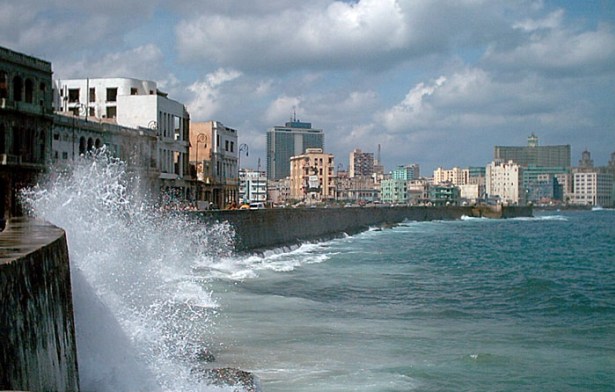A historical fact led to the origin of this expression.
The regidor and mayor mayor of the city of Guanabacoa, José Antonio Gómez Bullones, achieved fame by its value during the Taking of Havana by the English, in the context of the “War of the Seven Years” (1756-1763), that Involved Great Britain and Spain.

“In action the English involved 53 ships and 22,000 men Almirant George Pockock and Count of Albemarle George Keppel. “In the action the English involved 53 ships and 22,000 men. Almirant George Pockock and Count of Albemarle George Keppel.
The courageous Creole captain, better known as Pepe Antonio, became the hero of the popular resistance against the invader arrived from “Pérfida Albión”, as the French poet and diplomat of Spanish origin, Agustin Louis Marie de Ximénèz, called 1726-1817) in his work “L ‘ere des Français”.
When the English landed on the coast of Havana, on June 7, 1762, Pepe Antonio organized a party of 70 men to confront the invaders and said that at the head of his troops he loaded the machete against the intruders, with whom he held several Fighting and makes more than fifty prisoners in the first days.
For the heroic activity of this son of the town of Guanabacoa before the English invaders who caused more than 300 casualties and takes him more than 200 hostages, in more than a month and a half of fighting, as some researchers put it, was in the mouth of The capital of the popular phrase: doing things to Pepe, that is, by force.

“José Antonio Gómez Bullones. Hero of the popular resistance against the English, was Regidor, mayor of Guanabacoa, from 1748 to 1762. “José Antonio Gómez Bullones. Hero of the popular resistance against the English, was Regidor, major mayor of Guanabacoa, from 1748 to 1762.
His hombradía was collected as a glorious fact of the history country, although the soldiers of Spain finally put down the arms and during 11 months the hosts of England maintained the dominion of the island, whereas Pepe Antonio, according to data not very reliable, dies of natural death The 26 of July of 1762.
Related to the taking of Havana is still widely used in the Greater Antilles, although with different meaning to the original voice, another not less well-known popular phrase: to work for the English, with which at that moment someone was questioned by His lack of “fidelity” to the defeated Spanish crown
The Seven Years War that involved several nations meant for Cuba the taking of Havana by the British, a blow that took Spain out of the conflict and made it lose Florida in return for recovering the Caribbean island and as compensation, the king French ceded Louisiana to the Iberian peninsula.
Agencies / Arrajatable / Denis / Internet Photos / Arnoldo Varona / TheCubanHistory.com
THE CUBAN HISTORY, HOLLYWOOD.
FOLLOW US ON TWITTER AND FACEBOOK. THECUBANHISTORY.COM
PERSONAJES Y FRASES CUBANAS: “HACER LAS COSAS DE A PEPE”.
Un hecho histórico propició el origen de esta expresión.
El regidor y alcalde mayor de la ciudad de Guanabacoa, José Antonio Gómez Bullones, alcanzó fama por su valor durante la Toma de La Habana por los ingleses, en el contexto de la “Guerra de los Siete Años”(1756-1763), que involucró a Gran Bretaña y España.

En la operación los ingleses utilizaron 53 buques y 22 mil hombres, al mando del almirante George Pockock y el Conde de Albemarle George Keppel.
El corajudo capitán criollo, más conocido como Pepe Antonio, se convirtió en el héroe de la resistencia popular contra el invasor llegado de la “Pérfida Albión”, como llamara a Inglaterra el poeta y diplomático francés de origen español Agustin Louis Marie de Ximénèz, (1726-1817) en su obra “L’ ere des Français”.
Cuando los ingleses desembarcan en el litoral habanero, el siete de junio de 1762, Pepe Antonio organiza una partida de 70 hombres, para enfrentar a los invasores y dicen que al frente de su tropa cargó al machete contra los intrusos, con los cuales sostiene varios combates y hace más de medio centenar de prisioneros en las primeras jornadas.
Por el heróico quehacer de este hijo de la villa de Guanabacoa ante la invasores ingleses a quienes ocasionó más de 300 bajas y le toma más de 200 rehenes, en más de mes y medio de lucha, tal como plantean algunos investigadores, quedó en boca de los capitalinos la popular frase: hacer las cosas de a Pepe, o sea, por la fuerza.

José Antonio Gómez Bullones. Héroe de la resistencia popular contra los ingleses, fue Regidor, alcalde mayor de Guanabacoa, desde 1748 hasta 1762.
Su hombradía quedó recogida como hecho glorioso de la historia patria, aunque los soldados de España depusieron finalmente las armas y durante 11 meses las huestes de Inglaterra mantuvieron el dominio de la isla, mientras Pepe Antonio, según datos no muy fiables, fallece de muerte natural el 26 de julio de 1762.
Relacionado con la toma de La Habana es muy usada todavía en la mayor de las Antillas , aunque con diferente significación a la voz original, otra no menos conocida frase popular: trabajar para el inglés, con lo que en aquel momento se cuestionaba a alguien por su falta de “fidelidad” a la derrotada corona española
La Guerra de los Siete Años que involucró a varias naciones significó para Cuba la toma de La Habana por los Ingleses, un golpe que sacó a España del conflicto y le hizo perder La Florida a cambio de recuperar la isla caribeña y como compensación, el rey Francés cedió la Luisiana a la península Ibérica.
Agencies/Arrajatable/Denis/Internet Photos/Arnoldo Varona/TheCubanHistory.com
THE CUBAN HISTORY, HOLLYWOOD.





